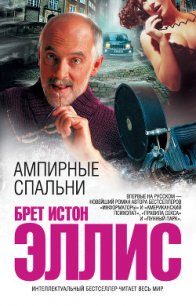Cry Wolf - Smith Wilbur (читать хорошую книгу полностью txt) 📗
breakfast of black bread and weak coffee.
The Third Battalion was in a collectively sombre mood as the sun came
up in a blaze of hot scarlet, forcing them almost immediately to
discard the greatcoats. The sun climbed into a sky of burning blue and
the men waited as patiently as oxen in the traces. Someone once
observed that war is ninety-nine per cent boredom and one per cent
unmitigated terror. The Third Battalion was learning the ninety-nine
per cent.
Major Luigi Castelani sent yet another messenger to the Colonel's
quarters a little before noon, and this time received a reply that
the
Count was now actually out of bed and had almost completed his toilet.
He would join the battalion shortly. The Major swore with the practice
of an old campaigner and set off with his rolling swagger down the
column to quell the mutinous mutterings from the half mile-long column
of canvas-covered lorries sweltering in the midday sun.
The Count came like the rising sun itself, glowing and glorious,
flanked by two captains and preceded by a trooper carrying the battle
standard which the Count had personally designed. It was based on the
eagles of a Roman legion, complete with shrieking birds of prey and
dangling silken tassels.
The Count floated on a cloud of bonhomie and expensive eau de cologne.
Gino got a few good shots of him embracing his junior officers, and
slapping the backs of the senior NCOs. At the common soldiers he
smiled like a father and spurred their spleens with a few apt homilies
on duty and sacrifice as he strode down the column.
"What a fine body of warriors," he told the Major. "I am moved to
song." Luigi Castelani winced. The Colonel was frequently moved to
song. He had taken lessons with the most famous teachers in Italy and
as a younger man he had seriously considered a career in opera.
Now he halted and spread his arms, threw back his head and let the song
flow in a deep ringing baritone. Dutifully, his officers joined in the
stirring chorus of "La Giovinezza', the Fascist marching song.
The Colonel moved slowly back along the patient column in the sunlight,
pausing to strike a pose as he went for a high note, lifting his right
hand with the tip of the second finger lightly touching the thumb,
while the other hand grasped the beiewelled dagger at his waist.
The song ended and the Colonel cried, "Enough! It is time to march
where are the maps?" and one of his subalterns hurried forward with
the map case.
"Colonel, sir," Luigi Castelani intervened tactfully. "The road is
well sign-posted, and I have two native guides-" The Count ignored him
and watched while the maps were spread on the glistening bonnet of the
Rolls.
"Ah!" He studied the maps learnedly, then looked up at his two
captains. "One of you on each side of me," he instructed. "Major Vita
you here! A stern expression, if you please, and do not look at the
camera." He pointed with a lordly gesture at Johannesburg four
thousand miles to the south and held the pose long enough for Gino to
record it. Next, he climbed into the rear seat of the Rolls and,
standing, he pointed imperatively ahead along the road to the Danakil
desert.
Mistakenly, Luigi Castelani took this as a command to advance. He let
out a series of bull-like bellows and the battalion was galvanized into
frantic action. Like one man, they scrambled into the covered lorries
and took their seats on the long benches, each in full matching order
with a hundred rounds of ammunition in his bandolier and a rifle
between his knees.
However, by the time 690 men were embarked, the Colonel had once more
descended from the Rolls. It was an unfortunate chance that dictated
that the Rolls should be parked directly in front of the casino.
The casino was a government-licensed institution under whose auspices
young ladies were brought out from Italy on six-month contracts to
cater to the carnal needs of tens of thousands of lusty young men in a
woman less environment.
Very few of these ladies had the stamina to sign a renewal of the
contract and none of them found it necessary.
Possessed of a substantial dowry, they returned home to find a
husband.
The casino had a silver roof of galvanized corrugated iron Hill and its
eaves and balconies were decorated with intricate cast-iron work. The
windows of the girls" rooms opened on to the street.
The young hostesses, who usually rose in the mid afternoon, had been
prematurely awakened by the bellowing of orders and the clash of
weapons. They had traipsed out on to the long second-floor veranda,
clad in brightly coloured but flimsy nightwear, and now entered into
the spirit of the occasion, giggling and blowing kisses to the
officers. One of them had a bottle of iced Lacrima Cristi, which she
knew from experience was the Colonel's favourite beverage, and she
beckoned with the cold de wed bottle.
The Colonel realized suddenly that the singing and excitement had made
him thirsty and peckish.
"A cup for the stirrup, as the English say," he suggested jocularly,
and slapped one of the captains on the shoulder.
Most of his staff followed him with alacrity into the casino.
A little after five o'clock, one of the junior subalterns emerged,
slightly inebriated, from the casino with a message from the Colonel to
the Major.
"At dawn tomorrow, we advance without fail." The battalion rumbled out
of Asmara the following morning at ten o'clock. The Colonel was
feeling liverish and disgruntled. The previous night's excitement had
got out of hand, he had sung until his throat was hoarse and had drunk
great quantities of Lacrima Cristi, before going upstairs with two of
the young hostesses.
Gino knelt on the seat of the Rolls beside him, holding an umbrella
over his head, and the driver tried to avoid potholes and
irregularities in the road. But the Count was pale and his brow
sparkled with the sweat of nausea.
Sergeant Gino wished to cheer him. He hated to see his
Count in misery and so he attempted to rekindle the warlike spirit of
yesterday.
"Think on it, my Count. We of the entire army of Italy will be the
very first to confront the enemy. The first to meet the blood-thirsty
barbarian with his cruel heart and red hands." The Count thought on it
as he was bidden. He thought on it with great concentration and
increasing nausea.
Suddenly he became aware that of all the 360,000 men that comprised the
expeditionary forces of Italy, he, Aldo Belli, was the very first, the
veritable point of the spear aimed at Ethiopia. He remembered suddenly
the horror stories he had heard from the disaster of Adowa. One of the
atrocity stories outweighed all others the
Ethiopians castrated their prisoners. He felt the contents of that
noble sac between his thighs retracting forcibly and a fresh sweat
broke out upon his brow.
Stop!" he shrieked at the driver. "Stop, this instant."
A bare two miles from the centre of the town, the column was plunged
into confusion by the abrupt halt of the lead vehicle, and,
answering the loud and urgent shouts of the commanding officer, the
Major hurried forward to learn that the order of march had been
altered. The command car would take up station in the exact centre of




